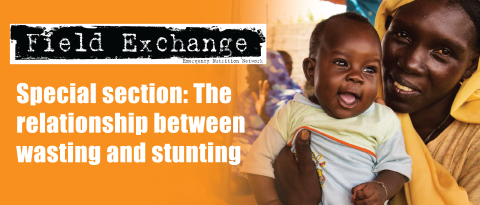A self-monitoring tool to improve nutrition counselling in Cambodia
This is a summary of the following papers: Sigh S & Sacher A (2021) The use of a self-monitoring tool improves nutrition counselling delivered by community volunteers in Cambodia. Action Against Hunger Cambodia; and Sigh S (2020) The use of a self-assessment tool in care groups to promote behaviour change, increase self-confidence and perceived control of women, and assess individual behaviour adoption over time. Action Against Hunger Cambodia.
To promote optimal child and maternal care and nutrition practices, the Multisectoral Food and Nutrition Security (MUSEFO) project implemented by Action Against Hunger implemented care groups in 180 villages across the Kampot and Kompong Thom provinces in Cambodia. The care group approach is a community-driven behaviour change model that combines cascaded, repeated messaging with comprehensive coverage to elicit nutrition- and health-related behaviour change. The groups are formed of female health volunteers who conduct regular group sessions and counselling with 10-15 caregivers of children under two years of age from their neighbourhood.
These papers evaluate the added value of using a self-monitoring tool – an illustrated card given to the caregiver to monitor practices at home – and participatory learning methods in addition to the existing delivery model, using mixed-methods: a desk review, telephone and in-person interviews, focus group discussions, and secondary data analysis.
In June 2020, 26 interviews and focus group discussions were conducted with 108 respondents and data from 30 self-monitoring cards. Both volunteers and caregivers perceived the card and participatory method as useful, noting that it acts as an aid that guides conversations during home visits, focusing the nutrition and health counselling on relevant priorities. Volunteers felt more confident when providing counselling which should result in increased job satisfaction. Feedback indicated that the tool enabled caregivers to participate actively in conversations. In addition, keeping the card at home made it easier for caregivers to recall key recommendations with one caregiver noting that “having this card is like having a teacher who keeps reminding me at home”.
Despite some challenges, e.g., illiteracy and incomplete or lost cards, the findings of this pilot study suggest that the combination of the self-monitoring tool and participatory methods is a promising approach to improving nutrition counselling quality and move beyond dissemination of nutrition information alone.


